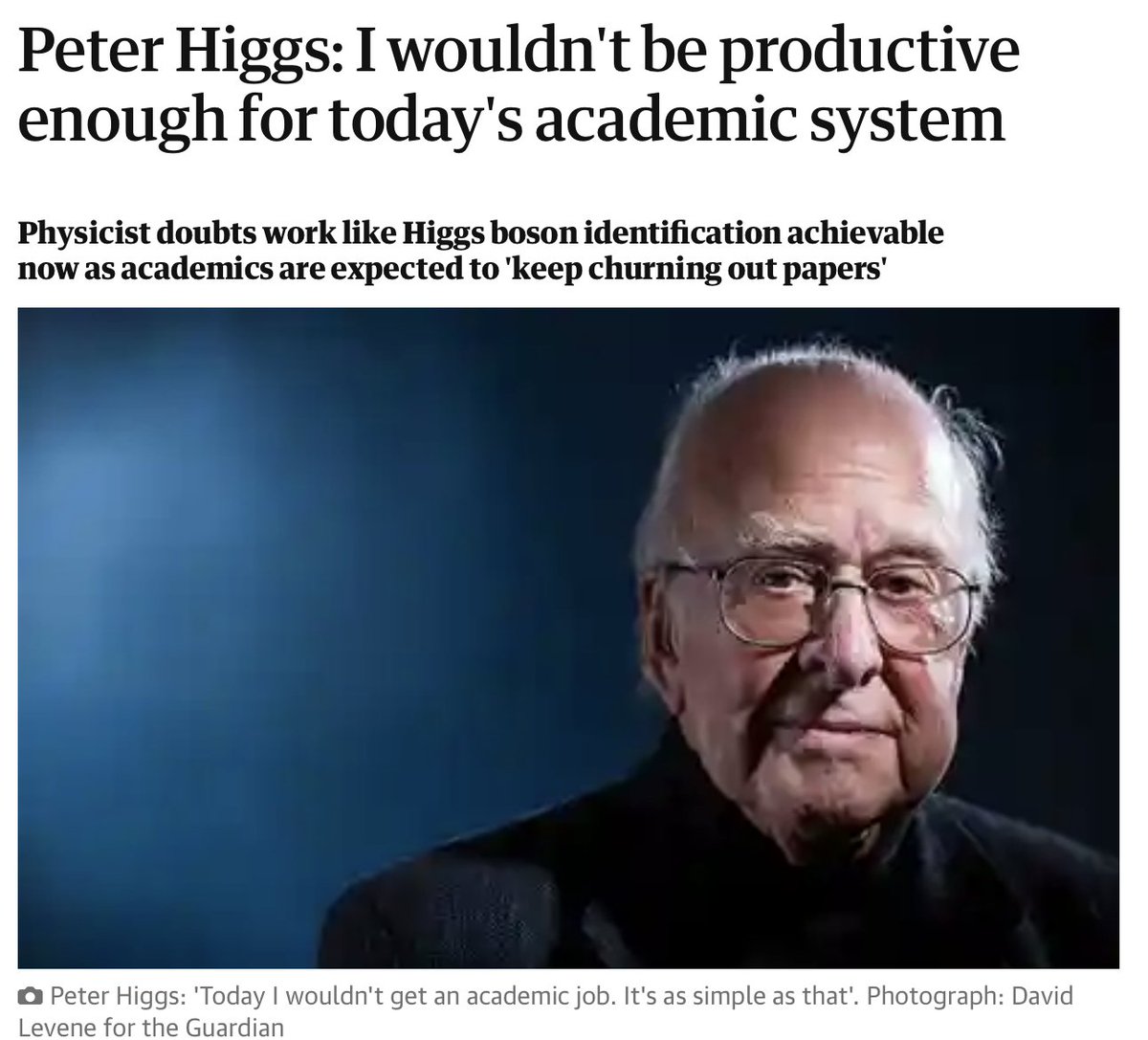
Scientist (PI). Doing fundamental research in #Materials and #Electrochemistry. Ex-PSI. Ex-Stanford. Run a Podcast (on Youtube).
How to get URL link on X (Twitter) App



 - He wouldn’t expect to make a breakthrough in today’s academia.
- He wouldn’t expect to make a breakthrough in today’s academia.
 1. Recommendation letters promote elitism.
1. Recommendation letters promote elitism. 
 1. The editor for Frontiers in Health Services sent out 150 (!) invitations to potential reviewers before he could receive 4 reviews. Only 1 was of sufficient quality. That is = 1/150!
1. The editor for Frontiers in Health Services sent out 150 (!) invitations to potential reviewers before he could receive 4 reviews. Only 1 was of sufficient quality. That is = 1/150!

 1. Scientists have a new mode of activity: “being online”
1. Scientists have a new mode of activity: “being online”
 - A disruptive paper is defined here by the likelihood that this paper (and not the references inside it) will be cited by subsequent studies.
- A disruptive paper is defined here by the likelihood that this paper (and not the references inside it) will be cited by subsequent studies.